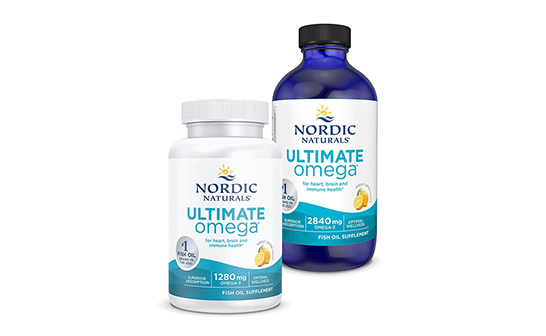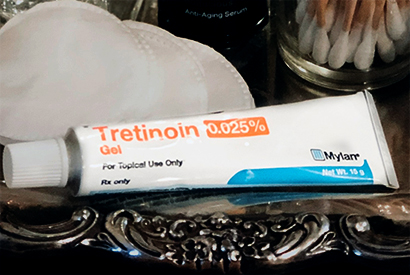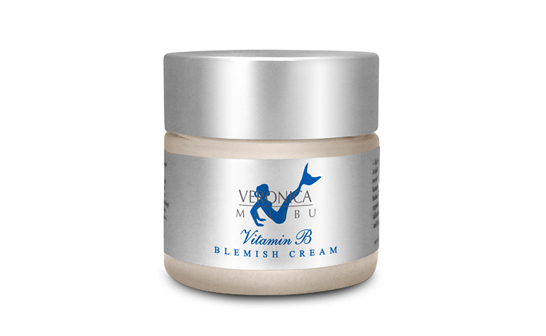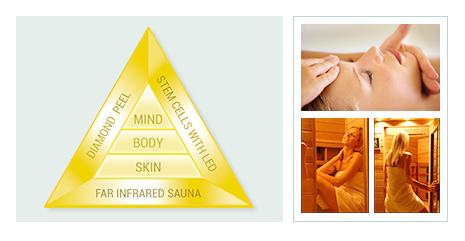
When it comes to achieving healthy and radiant skin, understanding the role of hormones is crucial. Hormones play a significant role influencing our skin health.
By understanding your hormonal cycle, managing hormonal acne, selecting skincare products for your skin type, making lifestyle adjustments and exploring professional treatments, you can harness the power of hormones to enhance your skincare routine and help achieve a balanced and radiant complexion at any age.
Many factors affect the condition of our skin, including hormonal issues. A group of three hormones have a considerable impact on hormonal skin changes:
- Progesterone stimulates oil glands within the skin. Sebum is the oil produced by the body’s sebaceous glands. It’s responsible for moisturizing and protecting your skin.
- Estrogen stimulates collagen, elastin and hyaluronic acid that helps our skin remain plump and firm.
- Testosterone works in a similar way as progesterone, by activating the sebaceous glands to produce oil.
You can see how they have a significant effect on your oil glands, which often lead to breakouts, oily skin and even dry skin. Maintaining a healthy diet, using skincare products for your particular skin type, exercising regularly, practicing stress reduction, and getting adequate sleep are all best for maintaining healthy skin during hormonal changes. Another way to naturally balance hormones and achieve clear skin is by taking Omega 3 fatty acids. They have been shown to be an effective hormonal acne treatment. Not only do these essential fatty acids soothe our skin’s inflammatory response to excess sebum and bacteria, but they also help balance acne causing hormones, such as testosterone. My favorite Omega products are Nordic Naturals. I’ve been using them for over twenty years. I believe they exceed the strictest purity standards for environmental toxins and contaminants. nordic.com


Tretinoin (Retin-A) is excellent for managing hormonal breakouts and imbalances in the skin. It not only can treat hormonal acne, but also improves texture, scarring and fades hyperpigmentation.
Tretinoin is most commonly prescribed as a cream, but I prefer the gel/water based option. You can’t use retinoids if you’re pregnant or breast feeding, and you have to be sure to wear a sunscreen during the day. I have written about Retin-A in past blogs, I’m a huge fan and It’s still the gold standard in skincare.
Skin changes in most pregnant women in one form or another. During pregnancy hormone levels fluctuate dramatically. For some, there fluctuations in hormones doing pregnancy can also lead to an increase in oil production, which can result in breakouts and acne. Using a broad-spectrum sunscreen daily will protect the skin. This is important during pregnancy with the increased chance of developing melasma. Certain skincare ingredients, such as retinoids, hydroquinone, and salicylic acid with concentrations of 2% or more are not recommended during pregnancy. Get clear advice on the best product for your particular skin type with your esthetician or dermatologist.
The Vitamin B Blemish Cream is highly effective and excellent for normal, oily, blemished and problem skin. Vitamin B (yeast extract) helps regulate oil gland secretion to reduce clogged pores, inflammation and break-outs.
As you approach menopause, hormonal changes can be described as erratic and cause a variety of skin issues, including dryness and breakouts. The overall declining estrogen levels can lead to a drop in collagen production, resulting in the skin becoming thinner and less elastic. Skin barrier health is even more important during this time. It’s important to include hydrating ingredients, like hyaluronic acid and ceremides in you daily routine. These ingredients support our natural skin barrier and strengthen the skin.
Using ingredients like peptides and retinoids will support the skin’s natural collagen production. They optimize cellular turnover to improve radiance, and over time, skin thickness.
After menopause, hormonal change continue to impact the skin. Decreased estrogen levels can lead to further dryness and thinning, as well as more fine lines and wrinkles. However, some people may also experience and improvement in their skin due to the absence of hormonal breakouts. Your hormones begin to even out rather then cycling month to month.
I recommend layering hydration products, like a toner and serum. Moisturizers can now be ultra nourishing as we no longer need to worry about clogging pores, so opt for formulas rich in oils to best support your skin.
An excellent treatment for hormonal skin at every age is the Pyramid Face and Body Treatment. It begins with an Infrared Sauna to detoxify, improve the immune system, burn calories and improve hormonal skin. Next, the client has a rejuvenating facial followed by the OmniluxPlus Light Treatment.
The bottom line is that hormones certainly have a big impact on your skin. Each person’s skin is unique, and it’s important to keep in mind that the relationship between hormones and the skin is complex and can vary from person to person. Genetics, lifestyle, and skincare habits can also play a role in skin health and appearance. Always listen to your body and skin, and give it the care and attention it deserves.
Love and light, and good health to you all,
Veronica
“Less make-up is better, it’s always better to let your natural beauty shine.”
– Veronica






